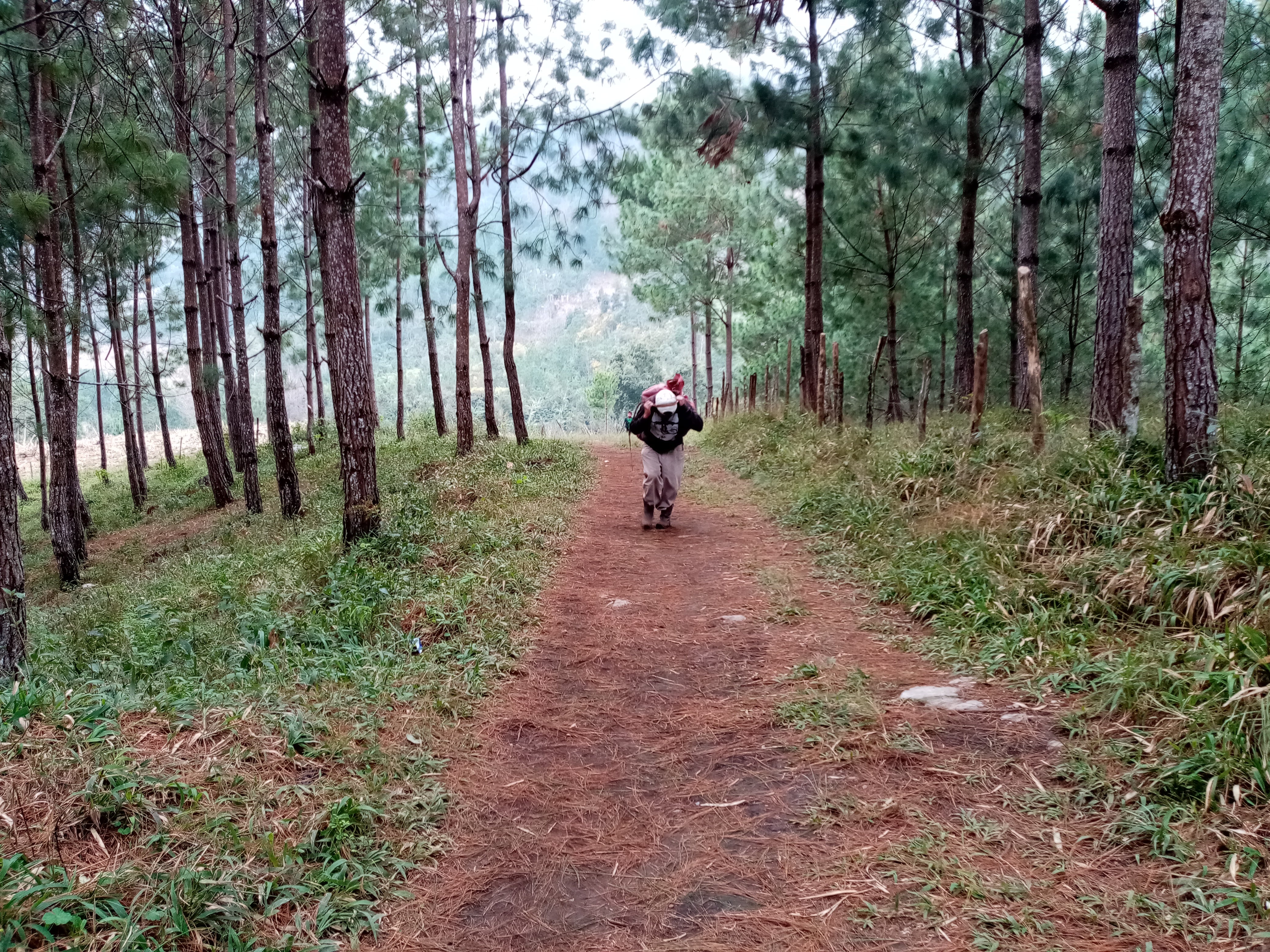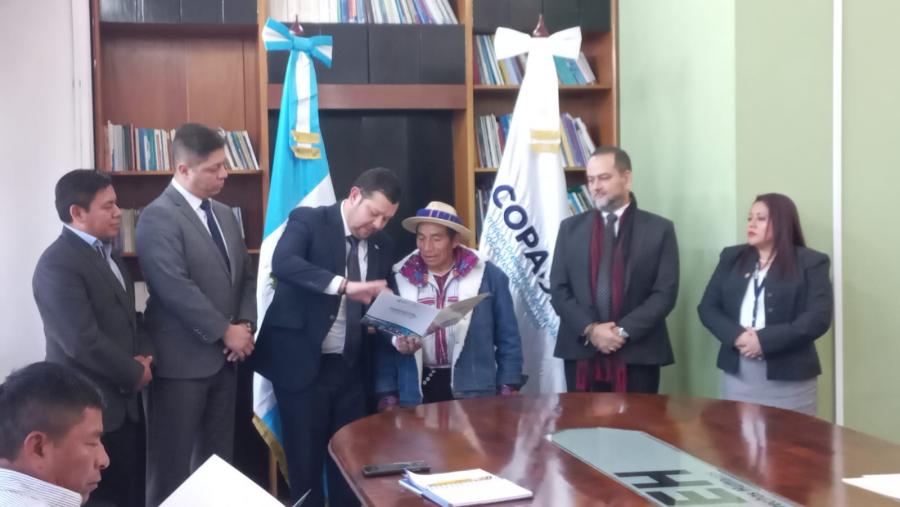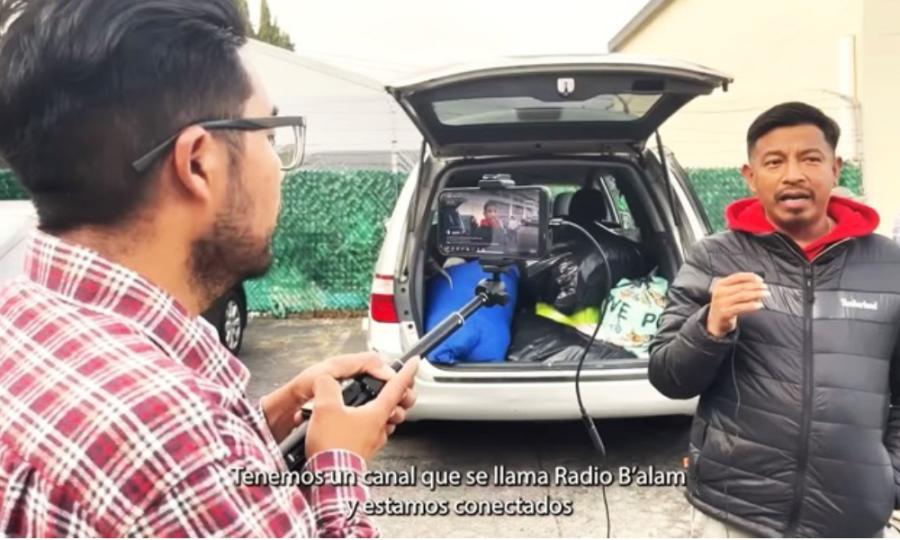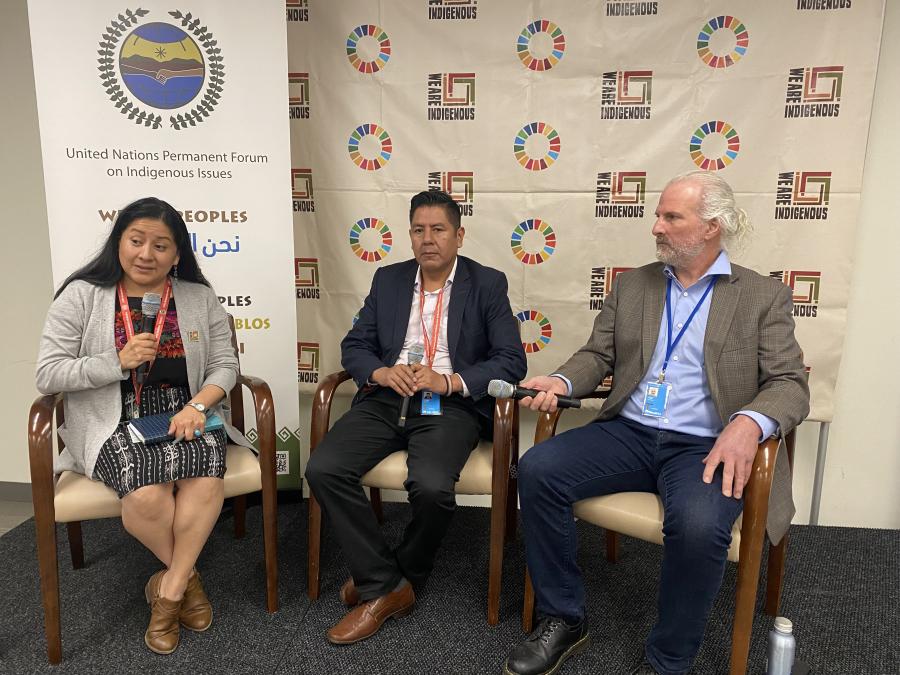
“I reclaim happiness without losing indignation” - from the Maya Q’eqchi’ worldview
By María Mercedes Calel (Poqo’mchi')
In the territory of Martires Poq’omchi’ Pantup in San Cristóbal Verapaz, Guatemala, hope and enthusiasm for transformation and social change are some of the most prominent traits of those who have settled there. The population located in this area belongs to other communities that have come together as displaced populations. The people of these communities are victims, relatives of victims, and survivors of the 36-year armed conflict in Guatemala. The severe violations of human rights, the material and human losses with wounds still unhealed, the military dictatorship and the peace processes; these traumas have led the original settlers of these communities to pass on ideals for social justice to the new generations.
During the period of armed conflict, massive German immigration occurred due to the existing cronyism between authorities and landowners. The installation of U.S. companies, based on regressive legislation approved for the benefit of transnational companies and powerful elites, also took place.
Most people from the displaced communities currently work in informal businesses and domestic jobs, as farm day laborers, or in agriculture. Most of them do not know how to read or write, but the painful past they have lived through has helped them thrive in fields such as management, accounting, and practical communication in their first language, Poq’omchi’, as well as Spanish. They manage and distribute their community's resources, and they have the power to call for assemblies and raise their voices to represent their community to make changes and to transform the realities of the discriminatory and racist State we live in.

Still, there are challenges. Angélica Hernández Vargas, a former member of the Community Council for Development, originally from Chicaman, El Quiche, says, “during the formation of the residential area, successful processes were set up and resulted in development projects for the community. However, a while later, due to disagreement among leaders, scams occurred causing delays in future improvements for the community. There were arguments that the projects were unnecessary, that there were actions that were not executed in the best way, devaluing the start-ups."
It is essential to recognize the skills, potential, and strengths of community leaders to transform their community environments to benefit the whole. Because when immersed in the struggle of life’s lessons--resistance, defenses, awareness of relationships, and inspiring work--they still find themselves with open wounds, without a cure.
The marks left by political insurgents and the genocide directly affect Maya communities; communities whose only goal is to honor and dignify the desire to be ever-present, supporting transformational processes out of narratives of violence and keeping their visions and legacy alive as light and voice for both the coming generations and those denied everything since colonization. The internal conflict put fear in the populace, and those memories, thoughts, and legacies of trauma will not disappear. They forge the need to struggle for human rights and initiate awareness.
"We hate the farce they call the fatherland because that name takes our children from us so that they can serve the elites, seen merely as dogs, prisoners. They brutalize us in the name of the fatherland; they kill us in the name of the fatherland; they beat us in the name of the fatherland. And if we are so bold to rebel, we already know what awaits us, a direct shot without any hesitation. They will never understand the language of the people. If we ask for justice or bread, they shoot and incarcerate us. What, then, is the fatherland?"
— Virginia Bolten
--María Mercedes Calel (Poqo’mchi), 25, is from San Cristóbal Verapaz, Guatemala, and holds a diploma in criminal and forensic investigation. She has been a volunteer in a justice and historical memory organization since 2017, where she has carried out activities related to community organization. She has facilitated workshops on historical memory with women. Mercedes was a participant in the project “Training Indigenous Women to Defend their Human Rights,” a series of workshops on communication and human rights held between March and June 2021 by Cultural Survival and the Alumni Engagement Innovation Fund. The topics of the trainings included healing, information, and documentation of individual and collective human rights. Different media were used to document and communicate human rights violations, including writing, photography, video, radio, and social media. This article is the result of Mercedes' final training project.
Top photo: María Mercedes Calel



